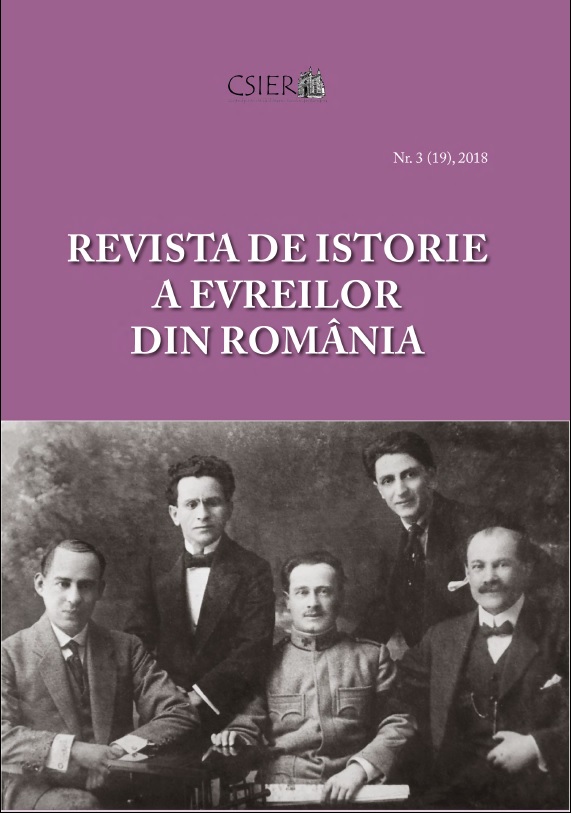Rethinking Interwar Historiography: The Jews of Arad as Subjects of the Nation in 1930s Romania
Rethinking Interwar Historiography: The Jews of Arad as Subjects of the Nation in 1930s Romania
Author(s): Emanuel-Marius GrecSubject(s): Ethnohistory, Social history, Jewish Thought and Philosophy, Interwar Period (1920 - 1939)
Published by: Editura Hasefer
Keywords: Romanianization; Arad; identity; Jewish community; transition;
Summary/Abstract: The interwar period has been constantly assigned a great deal of importance in the historiographies of Eastern Europe inasmuch as it has been regarded as a new era of post-transitional national states which shaped a new European order. I challenge this rigid categorization by showing how the study of Jews in the western territories of ‘Greater Romania’ during the 1930s does not highlight social novelty or political empowerment for minorities, but rather the Romanian state’s continued efforts at centralization and its attempt to accommodate the Jewish population with means devised in the pre-war period in the ‘Old Kingdom’. This involved supporting nationalist and conservative state policies, placing extensive constraints on the overall economy, and insisting on the pursuit of ‘Romanianization’, as well as putting the division of the newly integrated regions under the rule of petty administrators from Bucharest, who did not understand the cultural plurality of the region or grasp the potential of the state’s new situation. As such, I show how the Jews of Arad had to suddenly shift their loyalties after 1918, how they managed to fully integrate into the social and economic life of the Banat region and Romania of the 1920s, and how they later faced the pan-European rise of fascism and anti-Semitism with novel forms of nationalism, during the 1930s.
Journal: Revista de Istorie a Evreilor din Romania
- Issue Year: 2018
- Issue No: 3 (19)
- Page Range: 311-319
- Page Count: 9
- Language: English
- Content File-PDF

